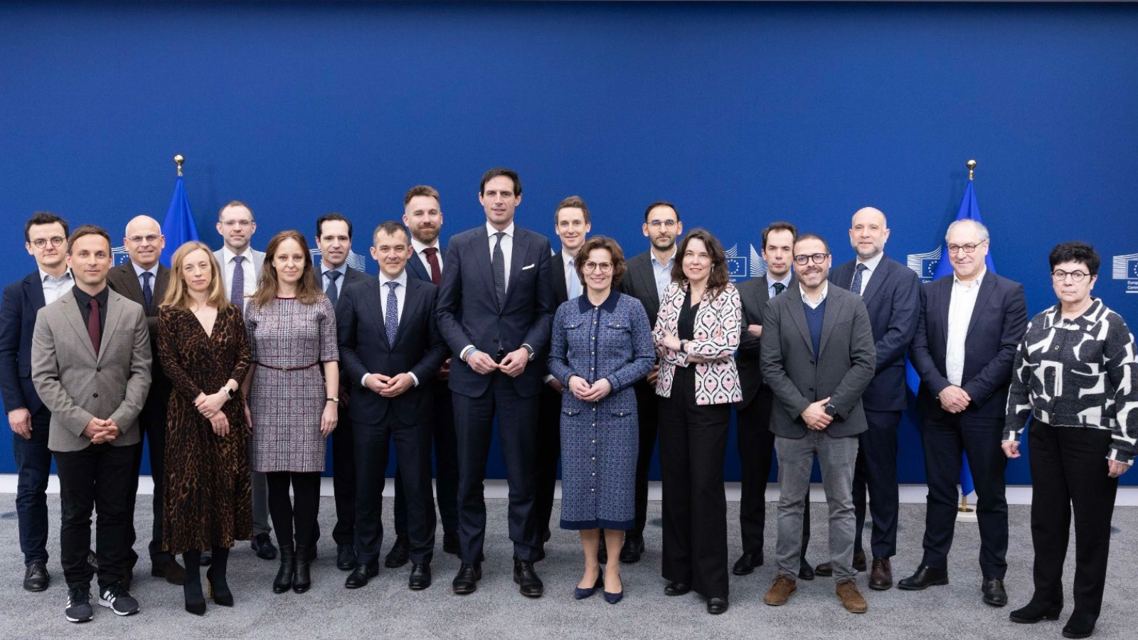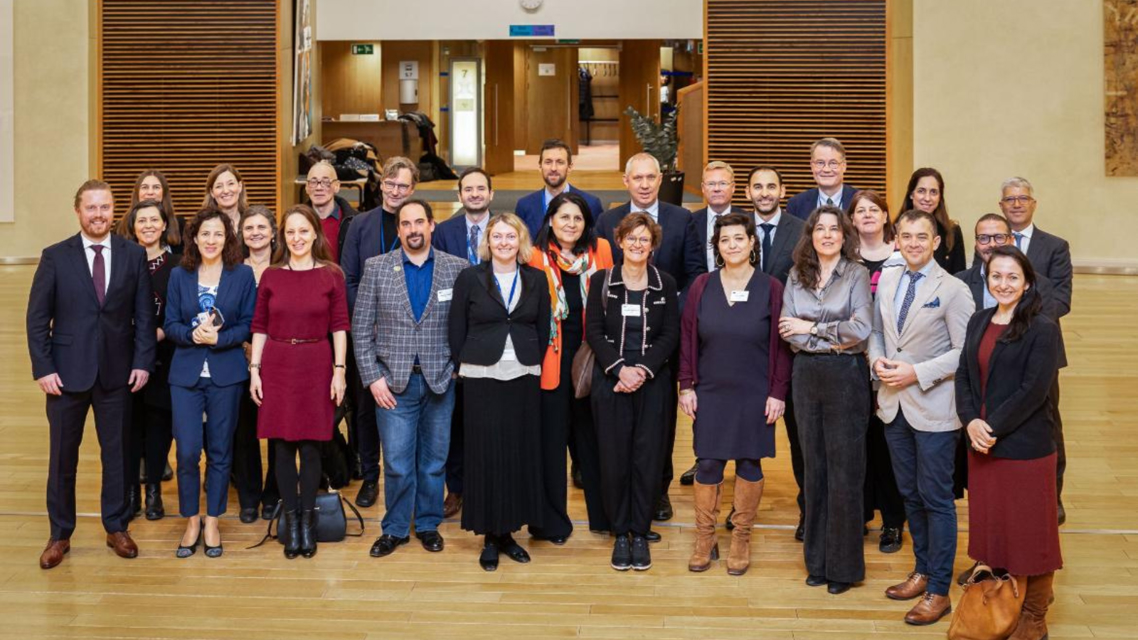About 90,000 job losses have been announced in 2024 in the European automotive industry (Eurofound). This is having a ripple effect along the entire supply chain.
In the context of the EU Strategic Dialogue on the Automotive industry, launched by the European Commission on 30 January, industriAll Europe conveyed the views of industrial workers in two thematic meetings that took place this week.
In the first meeting, the focus was on the clean transition of the sector, and it was co-chaired by Commissioners Wopke Hoekstra and Jessika Roswall, IndustriAll Europe stressed the urgent need to steer the transition to avoid the social and economic damage of unplanned change and disruption.
Judith Kirton-Darling, General Secretary of industriAll Europe, says: "The automotive sector needs a comprehensive industrial strategy that safeguards the whole supply chain. This must be based on a stable regulatory framework that provides certainty for investors as well as the anticipation of change for workers, through a clear role for their unions at the bargaining table. Investment is the key to boosting the urgently needed infrastructure roll-out and to support demand, but all too often public austerity plans and corporate cost-cutting plans are directly undermining investment and demand."
IndustriAll Europe calls for demand-side measures with strong social conditionalities in terms of ensuring good quality jobs locally, social dialogue, training and apprenticeships. Any incentives must come with strings attached to ensure they create co-benefits in terms of employment and retained value-added in the European automotive industry.
In the thematic meeting dealing with social dimension, chaired by Commissioner Roxana Mînzatu, industriAll Europe sounded the alarm bell regarding the wave of layoffs announced in recent months, calling for emergency measures and a wider Just Transition framework for the sector.
Isabelle Barthès, Deputy General Secretary of industriAll Europe says: “Today, the autoworkers are being hit by a tsunami of job cuts and restructuring, both in traditional segments (e.g. internal combustion engine supply chains) and activities that will be necessary to achieve our climate aims (e.g. the battery sector). We call for social responsibility in the current context, from employers and politicians, and asserted action to ensure negotiated solutions for all sites and workers. Each closure not only leads to the loss of jobs, but also to the loss of strategic know-how that undermines our industrial fabric long term. We need a European mechanism, like SURE during the pandemic, to support the safeguarding of jobs and know-how, and to prevent the destruction of industrial capacities. We need negotiated plans to protect industrial capacities, halt deindustrialisation and bring stability.”
While supporting the need for a European Just Transition framework, industriAll Europe stressed that it cannot be limited to skills or disconnected from a wider job quality and social dialogue agenda. Social partners must be enabled to anticipate change and deliver quality, sustainable jobs through negotiated solutions. To achieve this, the EU Industrial Action Plan for Automotive must contain social conditionalities on all support to industry, and robust, social engagements promoting quality jobs, social dialogue, and the right to training.
In the context of the EU Strategic Dialogue on the Automotive industry, launched by the European Commission on 30 January, industriAll Europe conveyed the views of industrial workers in two thematic meetings that took place this week.
In the first meeting, the focus was on the clean transition of the sector, and it was co-chaired by Commissioners Wopke Hoekstra and Jessika Roswall, IndustriAll Europe stressed the urgent need to steer the transition to avoid the social and economic damage of unplanned change and disruption.
Judith Kirton-Darling, General Secretary of industriAll Europe, says: "The automotive sector needs a comprehensive industrial strategy that safeguards the whole supply chain. This must be based on a stable regulatory framework that provides certainty for investors as well as the anticipation of change for workers, through a clear role for their unions at the bargaining table. Investment is the key to boosting the urgently needed infrastructure roll-out and to support demand, but all too often public austerity plans and corporate cost-cutting plans are directly undermining investment and demand."
IndustriAll Europe calls for demand-side measures with strong social conditionalities in terms of ensuring good quality jobs locally, social dialogue, training and apprenticeships. Any incentives must come with strings attached to ensure they create co-benefits in terms of employment and retained value-added in the European automotive industry.
In the thematic meeting dealing with social dimension, chaired by Commissioner Roxana Mînzatu, industriAll Europe sounded the alarm bell regarding the wave of layoffs announced in recent months, calling for emergency measures and a wider Just Transition framework for the sector.
Isabelle Barthès, Deputy General Secretary of industriAll Europe says: “Today, the autoworkers are being hit by a tsunami of job cuts and restructuring, both in traditional segments (e.g. internal combustion engine supply chains) and activities that will be necessary to achieve our climate aims (e.g. the battery sector). We call for social responsibility in the current context, from employers and politicians, and asserted action to ensure negotiated solutions for all sites and workers. Each closure not only leads to the loss of jobs, but also to the loss of strategic know-how that undermines our industrial fabric long term. We need a European mechanism, like SURE during the pandemic, to support the safeguarding of jobs and know-how, and to prevent the destruction of industrial capacities. We need negotiated plans to protect industrial capacities, halt deindustrialisation and bring stability.”
While supporting the need for a European Just Transition framework, industriAll Europe stressed that it cannot be limited to skills or disconnected from a wider job quality and social dialogue agenda. Social partners must be enabled to anticipate change and deliver quality, sustainable jobs through negotiated solutions. To achieve this, the EU Industrial Action Plan for Automotive must contain social conditionalities on all support to industry, and robust, social engagements promoting quality jobs, social dialogue, and the right to training.

